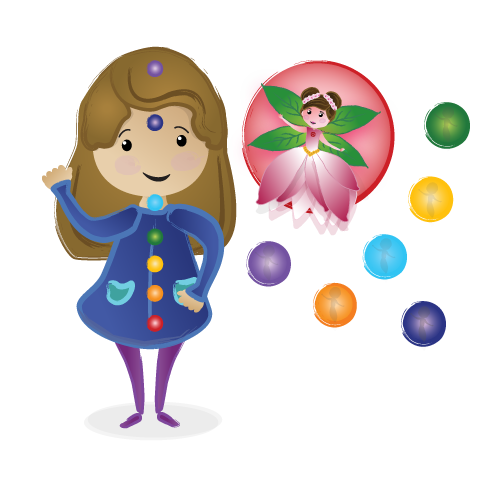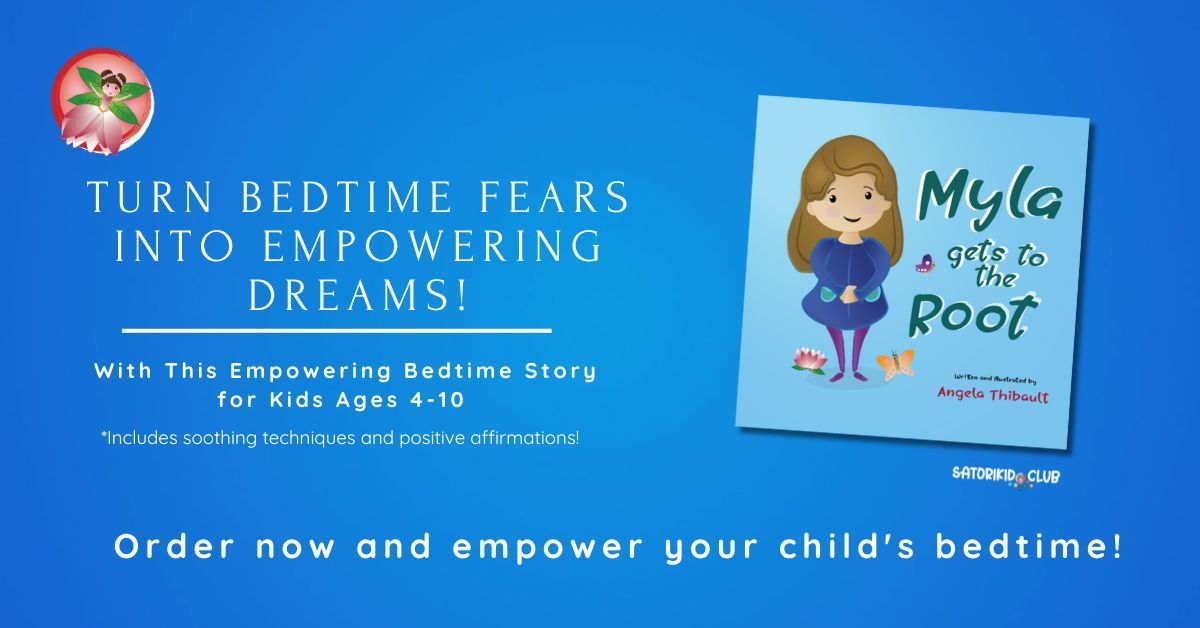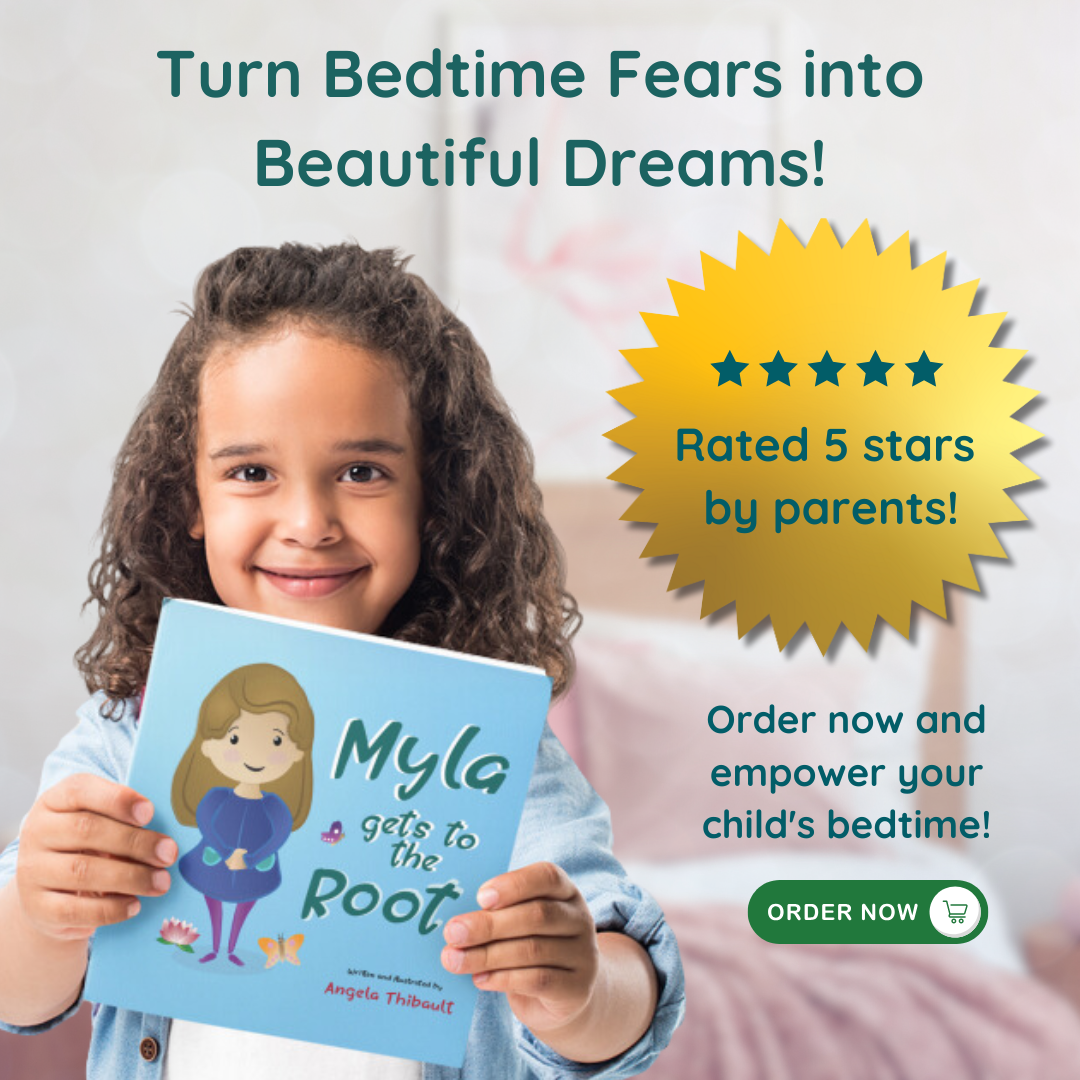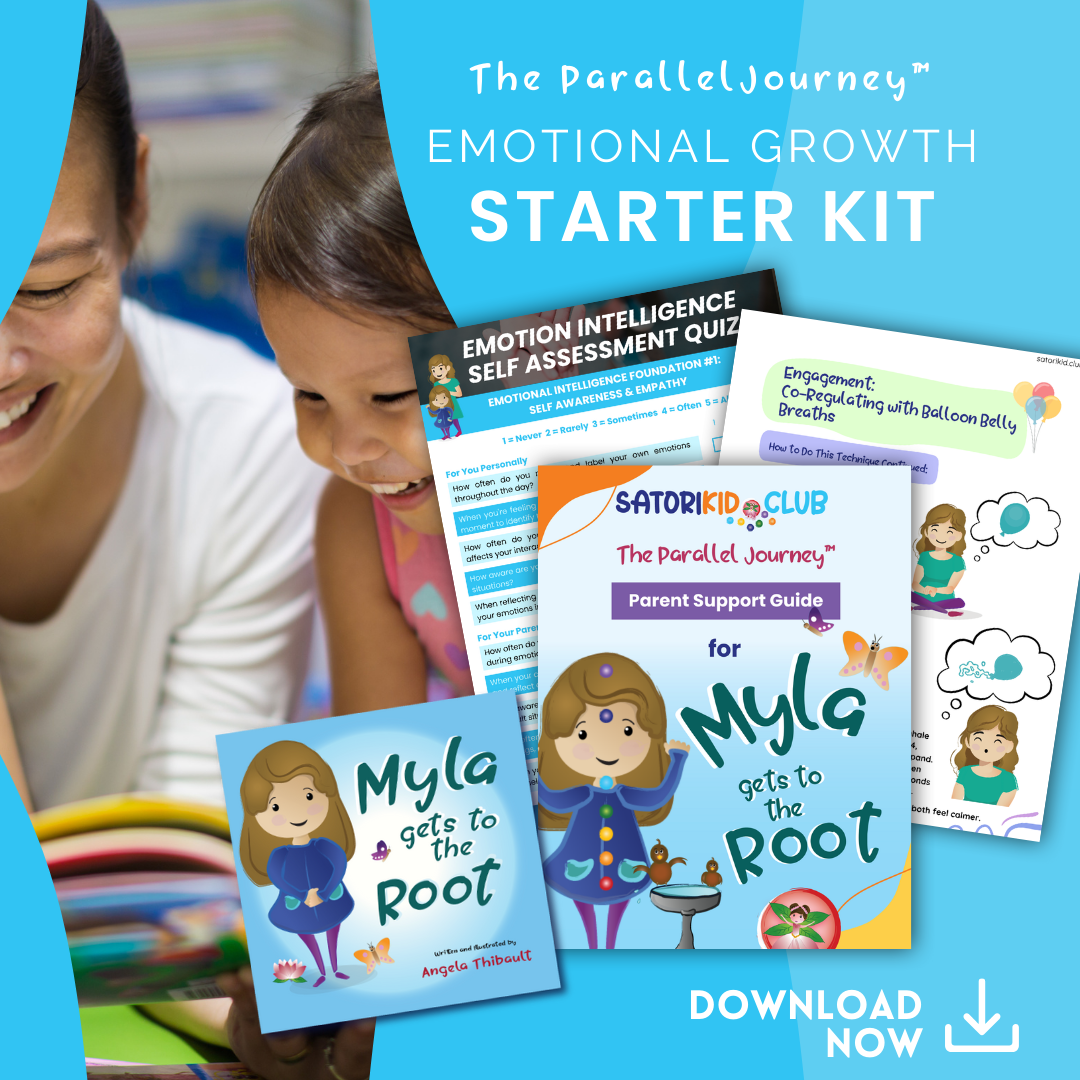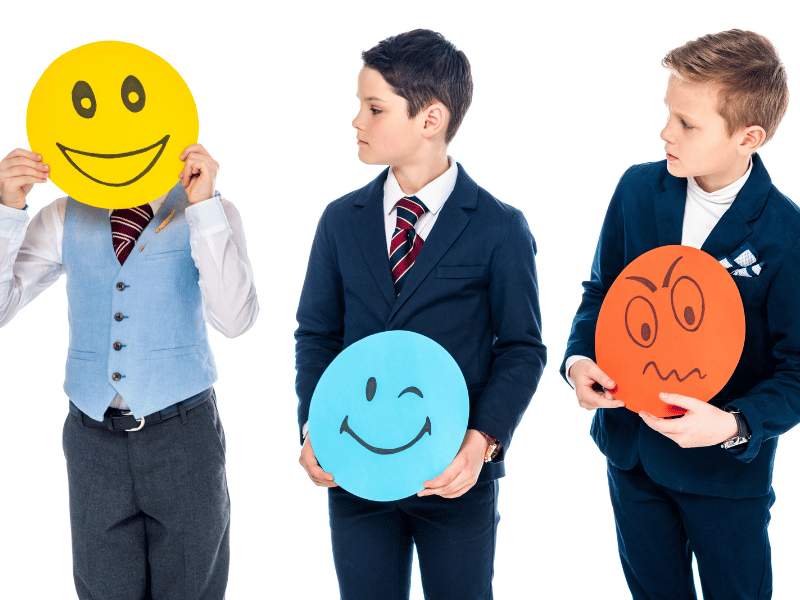Start your journey here
Embracing Mindful Parenting: A Reflection on Raising Kids in the 2000s
All activities should be supervised by an adult.
Share

What I wished I new about mindful parenting when
raising my children.

As I reflect on my journey as a mother of two fully grown kids, one is now 24 and the other 21, navigating parenting challenges during the 2000s, I ponder the concept of mindful parenting. While the term may not have been as popular back then, the essence of being present, intentional, and compassionate in our parenting approach was just as relevant. In this reflection, as I look back on those years, I realize how these challenges shaped my understanding of mindful parenting, even before the term became a mainstream concept. I'll share the lessons I would have appreciated about mindful parenting during that transformative era. The lessons learned through financial struggles and health setbacks underscore the timeless wisdom of being present, compassionate, and intentional in our parenting journey.

Dealing with a lifelong illness, Crohn's Disease:
My children were born in 1999 and 2002; I was first diagnosed with Crohn's in 2007. Amid the 6 years of debilitating illness it took for them to finally find it, I grappled with the debilitating effects of Crohn's disease while trying to parent 2 young children under 6. Balancing the demands of motherhood with the unpredictability of a chronic illness presented its own set of challenges. Mindful parenting, in this scenario, would have emphasized the importance of self-compassion and self-care. Acknowledging my limitations, seeking support when needed, and prioritizing my health would have allowed me to better care for my children.

Navigating Parenthood on a Tight Budget:
Amidst the trials of the 2000s, one of the significant challenges I faced was being a low-income single mother. Spending so much time ill made it hard to hold steady work. This is one of the reasons I originally became a website and graphic designer. Being able to work from home while sick was necessary for survival. Financial constraints always add an extra layer of stress to an already demanding role. Mindful parenting, in this context, would have encouraged me to focus on the quality of time spent with my children rather than the quantity of material possessions. Embracing simplicity, finding joy in shared experiences, and cultivating gratitude for the small things could have been powerful tools in navigating the financial challenges of single parenthood.

The Juggling Act:
Being a single mother with a chronic illness often felt like a relentless juggling act. Mindful parenting could have given me the tools to navigate this delicate balance with grace. Setting realistic expectations, asking for help when necessary, and cultivating a support system would have eased the burden of trying to do it all alone.

Eroded Confidence in Parenting:
The shadows of chronic illness cast a formidable challenge on my ability to care for my children and maintain a regular work routine during the 2000s. The unpredictability of Crohn's disease not only affected my physical well-being but also took a toll on my confidence as a parent. There were moments when I felt inadequate, unable to provide the consistent support and attention I believed my children deserved. The inability to participate fully in their lives, coupled with the financial strain, chipped away at my confidence. Mindful parenting, had I been aware of its principles, might have offered solace during those moments of self-doubt. Embracing the concept of self-compassion and recognizing that parenting is a journey filled with ebbs and flows could have helped me navigate the inevitable challenges with a gentler understanding of my limitations. As I reflect on those trying times, I recognize that building confidence in parenting is not about perfection but about embracing the imperfect and evolving nature of the journey.
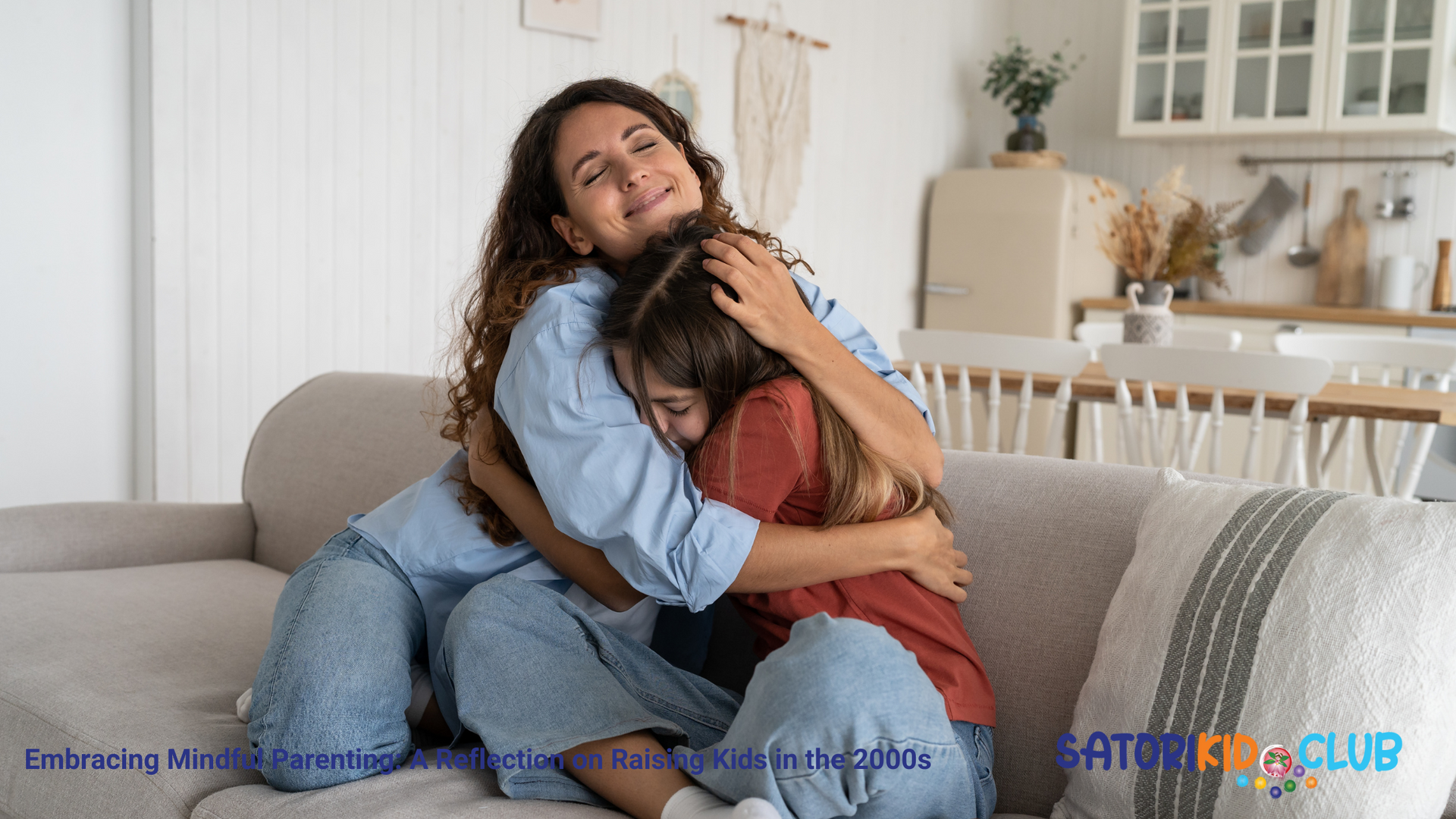
Prioritizing Emotional Well-Being:
Mindful parenting during the 2000s would have underscored the significance of prioritizing emotional well-being for myself and my children. Open communication about my health challenges, fostering a reassuring and nurturing environment for them to express their feelings, and cultivating resilience in the face of adversity would have been crucial components of navigating parenthood with a chronic illness.

The Digital Dilemma:
In the 2000s, the rapid rise of technology introduced a new dimension to parenting. And let me tell you, as a mother usually needing a lot of rest and recovery, technology was a godsend for rest time. From the advent of the internet to the proliferation of mobile phones, striking a balance between embracing technology and fostering real-life connections became a delicate dance. Even though it was a tool to help me gain needed time for resting after attacks or hospital visits, mindful parenting in the digital age would have encouraged me to set boundaries, promote face-to-face communication, and model healthy screen time habits for my children.

The Power of Presence:
When you are ill, the chaos of daily life with little ones does not stop; it's easy to get caught up in the never-ending to-do list. Mindful parenting urges us to pause, be present, and savour the precious moments with our children. In the 2000s, I wish I had known the profound impact of simply being there, both physically and emotionally, for my kids. Whether it was a school play, a soccer game, or a quiet evening at home, cherishing these moments fosters a deep connection.

Navigating Academic Pressure:
The 2000s witnessed a surge in academic expectations, with standardized testing and competition becoming increasingly prevalent. Mindful parenting would have reminded me to prioritize my children's well-being over the pressure to excel academically. Balancing support and encouragement with recognizing their unique strengths and interests could have alleviated the stress associated with the academic rat race.

Cultivating Emotional Intelligence:
Understanding and managing emotions is a crucial aspect of mindful parenting. In the 2000s, I could have benefited from fostering emotional intelligence in my children. Teaching them to recognize, name and express their feelings, as well as empathize with others, lays the foundation for healthy relationships and resilience in the face of life's challenges.

Embracing Imperfection:
Perfectionism was often glorified in the societal narrative of the 2000s, and as a mother, I often fell into the trap of unrealistic expectations. Mindful parenting encourages us to embrace imperfection, both in ourselves and our children. Recognizing and celebrating their individuality, along with acknowledging my own limitations, would have created a more nurturing and accepting family environment.

The Art of Self-Care:
Let's face it: amidst parenting responsibilities, it's easy for self-care to take a back seat for parents without a debilitating disease. This is doubly true of parents living with one. Mindful parenting reminds us that caring for ourselves is not a selfish act but a necessary one. In the 2000s, I would have benefited from carving out moments for self-reflection, pursuing hobbies, and prioritizing my well-being. A rejuvenated and balanced parent is better equipped to support the growth and development of their children.

Conclusion:
As Iook back on my journey as a mother in the 2000s, I realize that the essence of mindful parenting was woven into the fabric of those years, even if the term wasn't as widely recognized. Embracing the lessons of presence, balance, emotional intelligence, and self-care would have undoubtedly enriched my parenting experience. The challenges I faced as a low-income single mother dealing with Crohn's disease and the resulting erosion of my confidence in parenting shaped my understanding of the importance of compassion, resilience, and community support.
This realization fueled my passion to start this blog and write the Myla Children's Book Series. Through sharing my story and the lessons learned the hard way, I aim to show parents who may be struggling that they are not alone. The journey of mindful parenting is not about perfection but embracing imperfections and growing together. My hope is that, by providing tips and tricks gathered from my own experiences, I can empower parents to navigate the complexities of raising happy, healthy, and emotionally intelligent children. As parents of the past, present, and future, we are bound by a common thread of growth, and through the wisdom of mindful parenting, we can collectively nurture the hearts and minds of our children for generations to come.

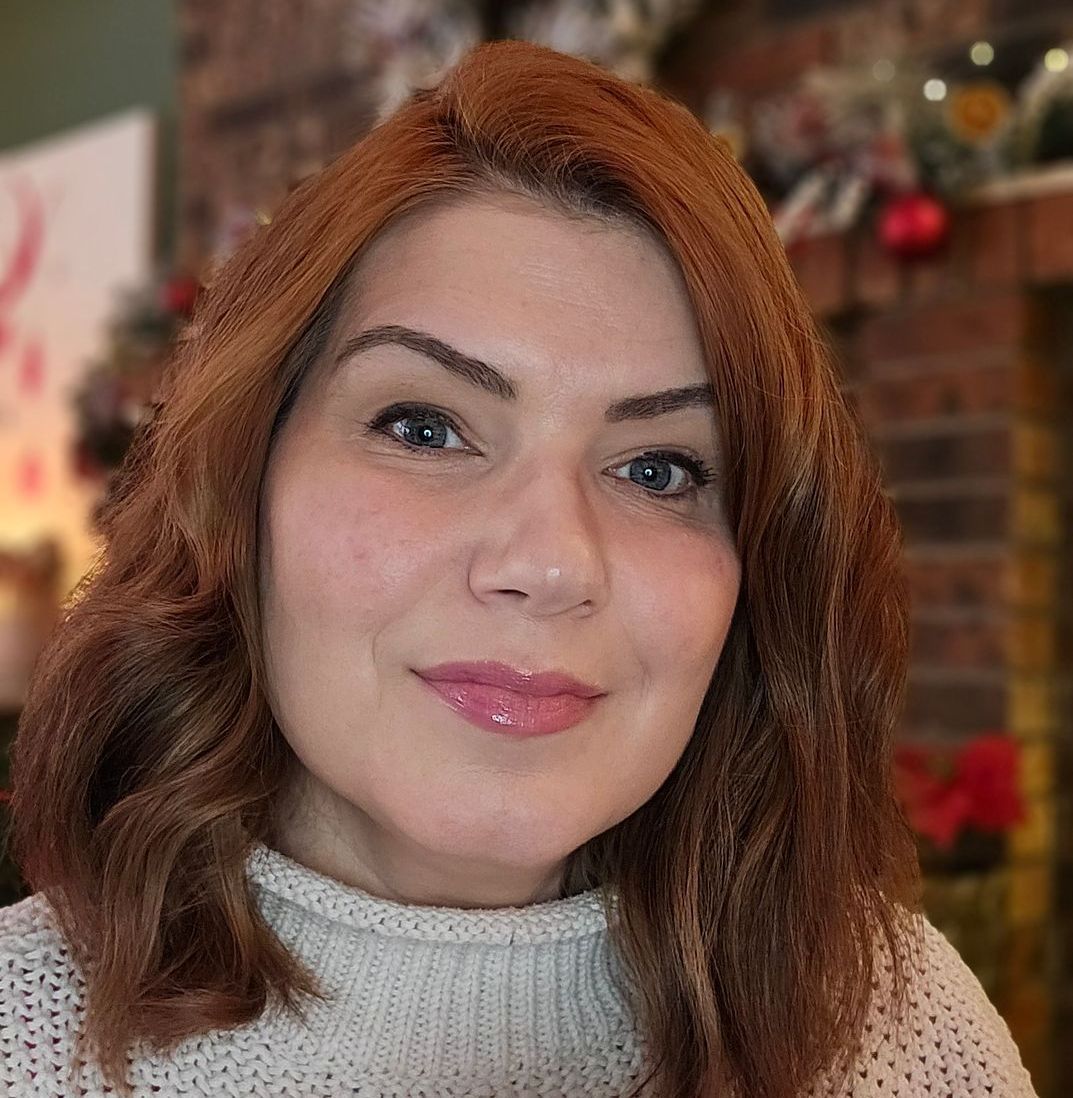
Angela Thibault
Angela Thibault is a mother of two, a passionate children’s author, and the founder of Satori Kid Club and The Parallel Journey™.
